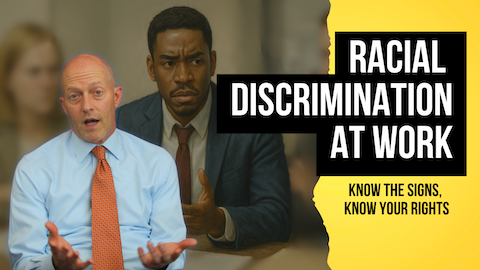Background Checks and Federal Law: Employee Rights and Employer Responsibilities
 Employers are increasingly using credit reports as a basis to make hiring decisions and many of them break federal law when they do so. If you lost out on a job opportunity because of a credit report, you may be able to seek redress through a lawsuit.
Employers are increasingly using credit reports as a basis to make hiring decisions and many of them break federal law when they do so. If you lost out on a job opportunity because of a credit report, you may be able to seek redress through a lawsuit.
The Fair Credit Reporting Act (FCRA) regulates how and when consumer reports (including creditworthiness and criminal background reports) can be used. If you are applying for a job,
- Before running a background check on you a prospective employer must give you notice and ask for permission to get a report in a “clear and conspicuous” way, making it stand out from the rest of a job application.
- You have the right to request a copy of the background report and that copy should be checked to make sure it’s accurate. If the application has no place to request a copy, you should make a hand written request on the form.
- Employees can also have their backgrounds checked with notice, but no notice is needed if the employer suspects the employee of misconduct.
- If your job application was rejected because of the results of a background check, the prospective employer must notify you of the problem before actually rejecting your application. This delay is supposed to give you an opportunity to correct any errors in their consumer report before you are officially rejected.
- There should be a second notice after the adverse action, stating how you can dispute inaccurate or incomplete information.
Many employees and rejected job applicants are using the courts to fight back against illegal FCRA practices by employers.
- A class action lawsuit was filed against Michaels Stores in Missouri federal court in January alleging the store chain violates the FCRA when screening job applicants, according to Fortune magazine. Plaintiffs claim Michaels broke the law when it failed to properly disclose that job applicants’ consumer reports might be obtained during the hiring process.
- Chuck E. Cheese had a similar lawsuit filed against it in California last year.
- Current employees and job applicants sued Century 21 Department Stores last year concerning FCRA. It’s alleged that background checks were done before obtaining job applicants’ permission.
- Last year Dollar General agreed to pay $4 million to settle claims that it didn’t properly notify more than 200,000 job applicants of background checks.
- Grocery chain Publix agreed to pay $6.8 million to settle claims that it violated the FCRA. It was sued for burying the disclosure form alongside other application materials.
Potential damages can range from $100 to $1000, plus punitive damages meant to punish the employer and reasonable attorney’s fees. The reason there are so many class action cases filed is because many people have been affected and if a large number of them are part of the same lawsuit litigation makes more financial sense.
The Federal Trade Commission has practical information and advice for job applicants impacted by background checks and FCRA available on this webpage.
If you’ve applied for a job and were rejected because of a background check and FCRA rules were not followed, you may have a cause of action against that employer. Find out more about your rights by contacting our office at 202-449-8527 so we can talk about what happened and the best way for you to proceed.





